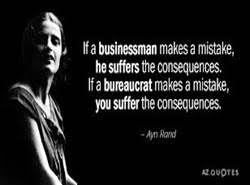Night of January 16th
Author : Ayn Rand
Genre : Fiction

Ayn Rand’s fans sent a huge amount of feedback on our previous review of her work (The Fountainhead). However, some also requested help in understanding Ayn Rand without reading those very voluminous books like Fountainhead or Atlas Shrugged.

Welcome then to Night of January 16th, a beautiful, sensational, engaging murder trial, that also clearly explains Rand’s philosophy of the ideal man. This was actually a Broadway theatre play and is a mere 90 pages long, so can be finished in one sitting.

Synopsis: On the night of January 16th, a very successful international tycoon (Bjorn Faulkner), also later proved to be a swindler, is found dead. The mystery is who murdered him? Was it Karen Andre “his beautiful, secretary-mistress, to whom he was a God like hero to be served with mind, soul and body”? Or was it the Whitfields: “his aristocratic young wife and millionaire banker father-in-law to whom he was an elemental force of nature to be tamed”?
The great innovation in the play was that the entire murder trial is without a pre-arranged verdict. The jurors are to be selected from the audience. “The defendant’s guilt or innocence is evenly balanced, and the decision will have to be based upon the juror’s own values and characters… it is really the audience (the reader) who is thus put on trial.”

The inspiration behind the play came from Ivar Krueger, the real-life Swedish tycoon and “Match King” “celebrated as a man of genius, of unswerving determination and spectacular audacity.” He committed suicide in 1932 and with his death came the revelation that his entire empire was a gigantic fraud, making him the quintessential fallen hero. What surprised Ayn Rand was that, after his death, “It was not his shady methods, his ruthlessness, his dishonesty that were being denounced, but his ambition… Its leitmotif was not: ‘How did he fall?’ But: ‘How did he dare to rise?’”

Nauseated by “the hordes of envious mediocrities rejoicing at his downfall”, Ayn Rand wrote this play “to feature the confrontation of the two extremes, two opposite ways of facing existence: passionate self-assertiveness, self-confidence, ambition, audacity, independence – versus conventionality, servility, envy, hatred, power-lust”.
The play shocks and teases with its bold lyrics. Faulkner’s suicide note: “I found only two enjoyable things on this earth whose every door was open to me: My whip over the world and Karen Andre.” Or Karen explaining Faulkner’s philosophy: “Bjorn never thought of things as right or wrong. To him, it was only: you can or you can’t. He always could.” Or the quiet understanding of true love: “there can be no more trouble between Herr Faulkner and Miss Andre as between you and your face in the mirror!” Or the court questioning the nature of love: “wasn’t it fear, not love, that held him in your hands?” Or the gangster Regan’s explanation of his blind devotion even in unrequited love: “do you think we are both so low that if something passes us to which one kneels, we no longer have eyes to see it? I loved her; (but) she loved Faulkner. That’s our only proof.”
Using a criminal as an example of heroic individualism is something Ayn Rand was often criticized for. A casual reader can take a very negative message and start justifying selfishness or treat all rules with disdain. However, Rand did clarify that “I do not think that a swindler is a heroic character… But for the purpose of dramatizing the conflict of independence versus conformity, a criminal – a social outcast – can be an eloquent symbol… A career of crime is not, in fact, the way to implement one’s self-esteem.”

Why should you read the book: This small play contains the entire philosophy of Ayn Rand. That “Your life, your achievement, your happiness, your person are of paramount importance. Live up to your highest vision of yourself no matter what the circumstances you might encounter. An exalted view of self-esteem is a man’s most admirable quality.” And in these testing times where society continuously tries to make us conform to its sense of morals and growth, this is a lesson worth living and dying for!
Goodreads Link: Night of January 16th by Ayn Rand | Goodreads

 This information will never be shared with third party
This information will never be shared with third party
Post A Comment
Want to join the discussion?Feel free to contribute!